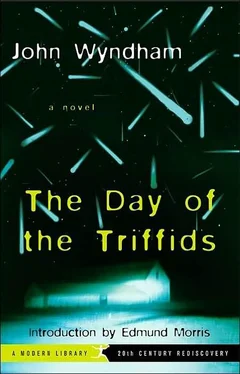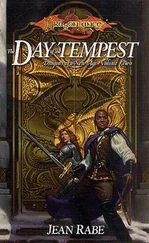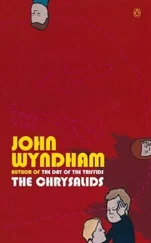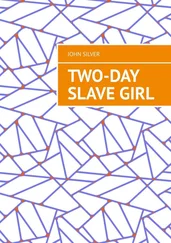Perhaps hunger was driving more people out of their homes. Whatever The reason, I found that the pans I now entered were more populous than any I’d seen since I left the hospital. Constant collisions took place on the sidewalks and in the narrow streets, and the confusion of those who were trying to get along was made worse by knots of people clustering in front of the now frequently broken shop windows. None of those who crowded there seemed to he quite sure what kind of shop they were facing. Some in the front sought to find out by groping for any recognizable object; others, taking the risk of disemboweling themselves on standing splinters of glass, more enterprisingly climbed inside.
I felt that I ought to be showing these people where to find food. But should I? If I were to lead them to a food shop still intact, there would be a crowd which would not only sweep the place bare in five minutes but would crush a number of its weaker members in the process. Soon, anyway, all the food in the shops would be gone; then what was to be done with the thousands clamoring for more? One might collect a small party and keep it alive somehow for an uncertain length of time—but who was to be taken and who left? No obviously right course presented itself however I tried to look at it.
What was going on was a grim business without chivalry, with no give, and all take, about it. A man humping into another and feeling that he carried a parcel would snatch it and duck away, on the chance that it contained something to eat, while the loser clutched furiously at the air or hit out indiscriminately. Once I had to step hurriedly aside to avoid being knocked down by an elderly man who darted into the roadway with no care for possible obstacles. His expression was vastly cunning, and he clutched avariciously to his chest two cans of red paint. On a corner my way was blocked by a group almost weeping with frustration over a bewildered child who could see but was just too young to understand what they wanted of it.
I began to become uneasy. Fighting with my civilized urge to be of some help to these people was an instinct that told me to keep clear. They were already fast losing ordinary restraints. I felt, too, an irrational sense of guilt at being able to see while they could not. It gave me an odd feeling that I was hiding from them even while I moved among them. Later on I found how right the instinct was.
Close to Golden Square I began to think of turning left and working back to Regent Street, where the wider roadway would offer easier going. I was about to take a corner that would lead me that way when a sudden piercing scream stopped me. It stopped everyone else too. All along the street they stood still, turning their heads this way and that, apprehensively trying to guess what was happening. The alarm, coming on top of their distress and nervous tension, started a number of the women whimpering. The men’s nerves weren’t in any too good a state either; they showed it mostly in short curses at being startled. For it was an ominous sound, one of the kinds of thing they had been subconsciously expecting. They waited for it to come again.
It did. Frightened, and dying into a gasp. But less alarming now that one was ready for it. This time I was able to place it. A few steps took me to an alley entrance. As I turned the corner a cry that was half a gasp came again.
The cause of it was a few yards down the alley. A girl was crouched on the ground while a burly man laid into her with a thin brass rod. The back of her dress was torn, and the flesh beneath showed red weals. As I came closer I saw why she did not run away—her hands were tied together behind her back, and a cord tethered them to the man’s left wrist.
I reached the pair as his arm was raised for another stroke. It was easy to snatch the rod from his unexpecting hand and bring it down with some force upon his shoulder. He promptly lashed a heavy boot out in my direction, but I had dodged back quickly, and his radius of action was limited by the cord on his wrist. He made another swiping kick at the air while I was feeling in my pocket for a knife. Finding nothing there, he turned and kicked the girl for good measure, instead. Then he swore at her and pulled on the cord to bring her to her feet. I slapped him on the side of his head, just hard enough to stop him and make his head sing for a bit—somehow I could not bring myself to lay out a blind man, even this type. While he was steadying himself from that I stooped swiftly and cut the cord which joined them. A slight shove on the man’s chest sent him staggering back and half turned him so that he lost his bearings. With his freed left hand he let out a fine raking swing. It missed me, but ultimately reached the brick wall. After that he lost interest in pretty well everything but the pain of his cracked knuckles. I helped the girl up, loosed her hands, and led her away down the alley while he was still blistering the air behind us.
As we turned into the street she began to come out of her daze. She turned a smeary, tear-stained face and looked up at me.
“But you can see!” she said incredulously.
“Certainly I can,” I told her.
“Oh, thank God! Thank God! I thought I was the only one,” she said, and burst into tears again.
I looked around us. A few yards away there was a pub with a phonograph playing, glasses smashing, and a high old time being had by all. A little beyond it was a smaller pub, still intact. A good heave wish my shoulder broke in the door to the saloon bar. I half carried the girl in and put her in a chair. Then I dismembered another chair and put two of its legs through the handles of the swing doors for the discouragement of further visitors before I turned my attention to the restoratives at the bar.
There was no hurry. She sipped at, and snuffled over, the first drink. I gave her time to get on top of things, twiddling the stem of my glass and listening to the phonograph in the other pub churning out the currently popular, if rather lugubrious, ditty:
“My love’s locked up in a frigidaire,
And my heart’s in a deep-freeze pack.
She’s gone with a guy, I’d not know where,
But she wrote that she’d never come back.
Now she don’t care for me no more,
i’m just a one-man frozen store, And it ain’t nice
To be on ice
With my love locked up in a frigidaire,
And my heart in a deep-freeze pack.”
While I sat I stole an occasional covert look at the girl. Her clothes, or the remnants of them, were good quality. Her voice was good too—probably not stage or movie acquired, for it had not deteriorated under stress. She was blond, but quite a number of shades sub-platinum. It seemed likely that
beneath the smudges and smears she was good-looking. Her height was three or four inches less than mine, her build slim but not thin. She looked as if she had strength if is were necessary, but strength which, in her approximately twenty-four years, had most likely nor been applied to anything more important than hitting balls. dancing. and, probably, restraining horses. Her well-shaped hands were smooth, and the fingernails that were still unbroken showed a length more decorative than practical.
The drink gradually did good work. By the end of it she was sufficiently recovered for habit of mind to assert itself.
“God, I must look awful,” she remarked.
It did not seem that anyone but me was likely to be in a position to notice that, but I left it.
She got up and walked over to a mirror.
“I certainly do,” she confirmed. “Where—”
“You might try through there,” I suggested.
Twenty minutes or so passed before she came hack. Considering the limited facilities there must have been, she’d made a good job; morale was much restored. She approximated now the film director’s idea of the heroine after a roughhouse, rather than the genuine thing.
Читать дальше











